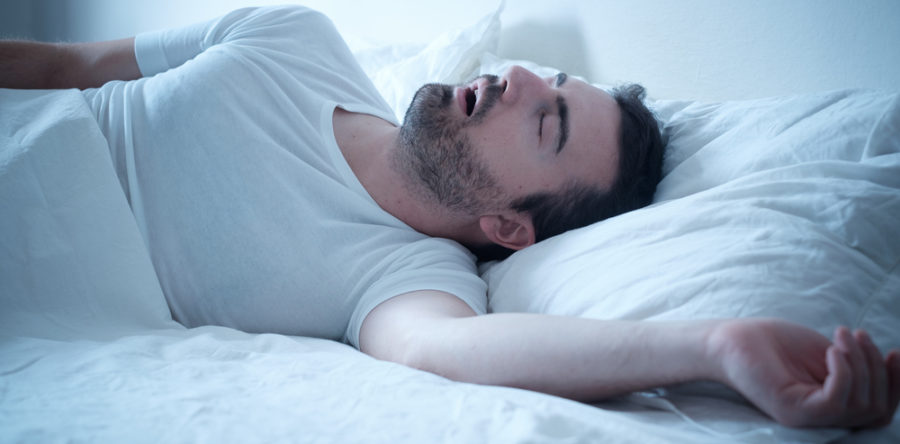Wondering what the difference is between sleep apnea and regular snoring? If you’re concerned about you or your partner suffering from sleep apnea, you may be surprised to learn that it’s actually one of the most common sleeping disorders that people experience. Unlike regular snoring, sleep apnea is a condition that hinders your ability to breathe properly during sleep, and most people are unaware that they even suffer from it. During sleep, a person will experience frequent pauses in their breathing, which causes the brain to jolt awake. This can occur many times throughout the night without the person being consciously aware of it happening. But there are some real telltale signs to determine if this is something you may be experiencing.
Here are five signs that you may have sleep apnea, and what you can do to help alleviate this problem.
Loud Disruptive Snoring
Snoring is one of the first signs of sleep apnea. If a person is suffering from sleep apnea, they will usually make loud and disruptive snoring sounds throughout the night. This highlights a serious obstruction in the airways, which is what sleep apnea creates. If your partner is constantly complaining about your loud and aggressive bouts of snoring at night, this is a good sign that you may have sleep apnea.
Pauses In Breathing
Since sleep apnea obstructs the upper respiratory airways, you may also notice frequent pauses in breathing during the night. This happens when the surrounding tissues of the throat or tongue relax and obstruct airflow. These pauses in breathing can last anywhere from 10 to 20 seconds and can occur many times throughout the night. As the breathing is obstructed, the brain kicks in and jolts the body awake to allow oxygen levels to regulate again. These ‘jolts’ can happen without the person realizing, which can hinder their ability to get a good night’s rest. If this sounds familiar and you feel as though your quality of sleep is suffering lately, it might be time to talk to your doctor.
Frequent Morning Headaches
Do you experience headaches often once you wake in the morning? This is another common sign of sleep apnea. The low levels of oxygen can result in vascular headaches. Experiencing frequent morning headaches and daytime drowsiness can point to a potential problem with this sleeping disorder.
Mood Swings & Irritability
Of course, with a constant lack of sleep, mood swings and irritability are bound to occur. Having a constant lack of quality sleep can impact the body in many negative ways, with mood swings being a predominant one. If you’re experiencing mood swings, depression, agitation or feel short-tempered on a regular basis, it may also be wise to talk to your healthcare provider.
Obesity & High Blood Pressure
Obesity and high blood pressure are both commonly connected to sleep apnea. Studies have shown a direct correlation between body weight and sleep apnea. So for those who are overweight, it can increase the likelihood of having restricted airflow during sleep. Frequent rapid spikes in blood pressure caused by the oxygen restrictions from sleep apnea can result in high blood pressure persisting even throughout the daytime.
Having a poor quality of sleep on a regular basis is hard enough to endure. But if you or your loved one is suffering from sleep apnea, it can cause more severe problems over time if it’s not identified early. To learn more about this condition and how to treat it, contact us today at Carlingwood Dental.


